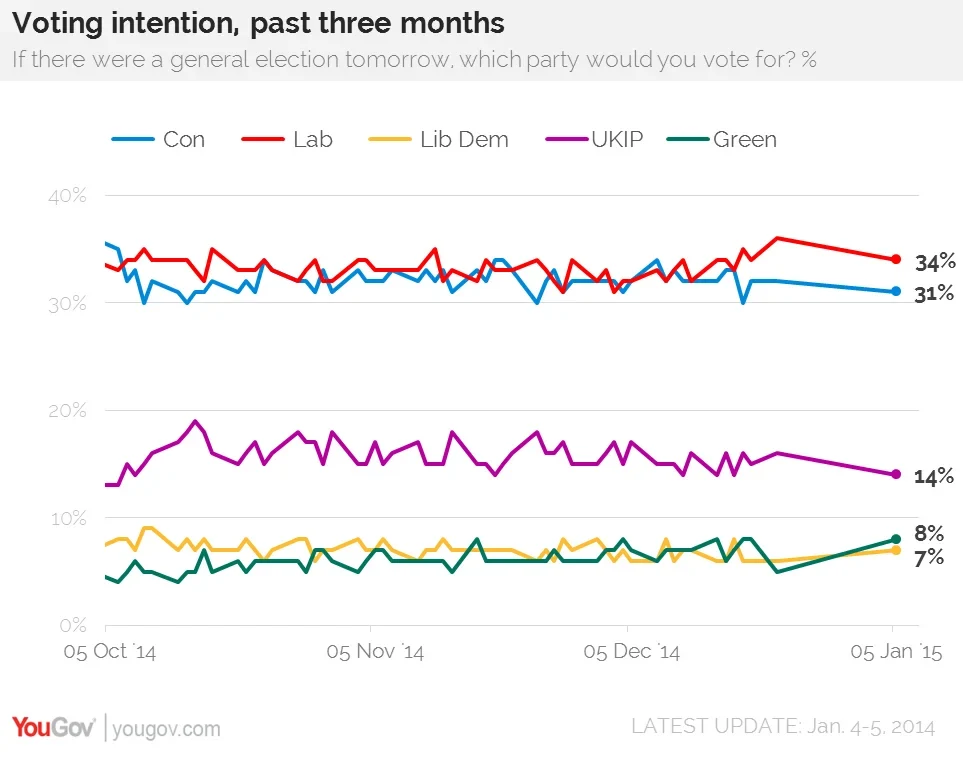Latest YouGov / The Sun results 5th January - Con 31%, Lab 34%, LD 7%, UKIP 14%, GRN 8%; APP -24

Methodology
We have made two slight changes to our methodology in the run up to the general election.
The first is a rationalisation of our sampling frame to produce a sample that better reflects the distribution of party support around Britain. Our overall demographic targets for Great Britain and the targets we use for our weighting remain unchanged, so these changes should not make any difference to our headline figures. However we are controlling our sampling in London and Scotland more carefully, so anyone who regularly studies our crossbreaks may notice a difference within them. Most importantly, we have started including controls on ethnicity in our London sampling, an important factor in driving voting intention.
The second change is to how we prompt our main voting intention question. Previously we prompted for Labour, the Conservatives, the Liberal Democrats, SNP/Plaid and for "other" parties. Respondents who ticked other parties were shown a second list of parties including UKIP, the Green party, the BNP and Respect.
Which parties to include in the main prompt is a difficult challenge, past experience has taught us that including a minor party that doesn't get much media coverage in the main prompt ends up overestimating their support when compared to actual election results. However in the 1980s pollsters had the opposite problem with the Liberal/SDP Alliance, underestimating their support when they were not prompted - either prompting or not-prompting can be a source of error, and there is no easy answer as to when to switch over.
In the case of UKIP, we've regularly reviewed whether or not to include them in the main prompt for our voting intention questions. In previous years internal testing suggested that it would make a significant difference to their reported level of support and we took the decision that not prompting would likely produce more accurate findings. More recent internal testing suggests that whether UKIP are prompted or not is no longer making a significant difference to our results. This suggests to us that the public are now familiar enough with UKIP's presence as a significant party that prompting would no longer give UKIP an artificial boost in reported support, and as such we have made the decision to include them in the main prompt in our voting intention questions for Great Britain.
As ever, we will continue to keep our methodology under constant review to make sure our polls are as accurate as possible in the run up to May's general election.






